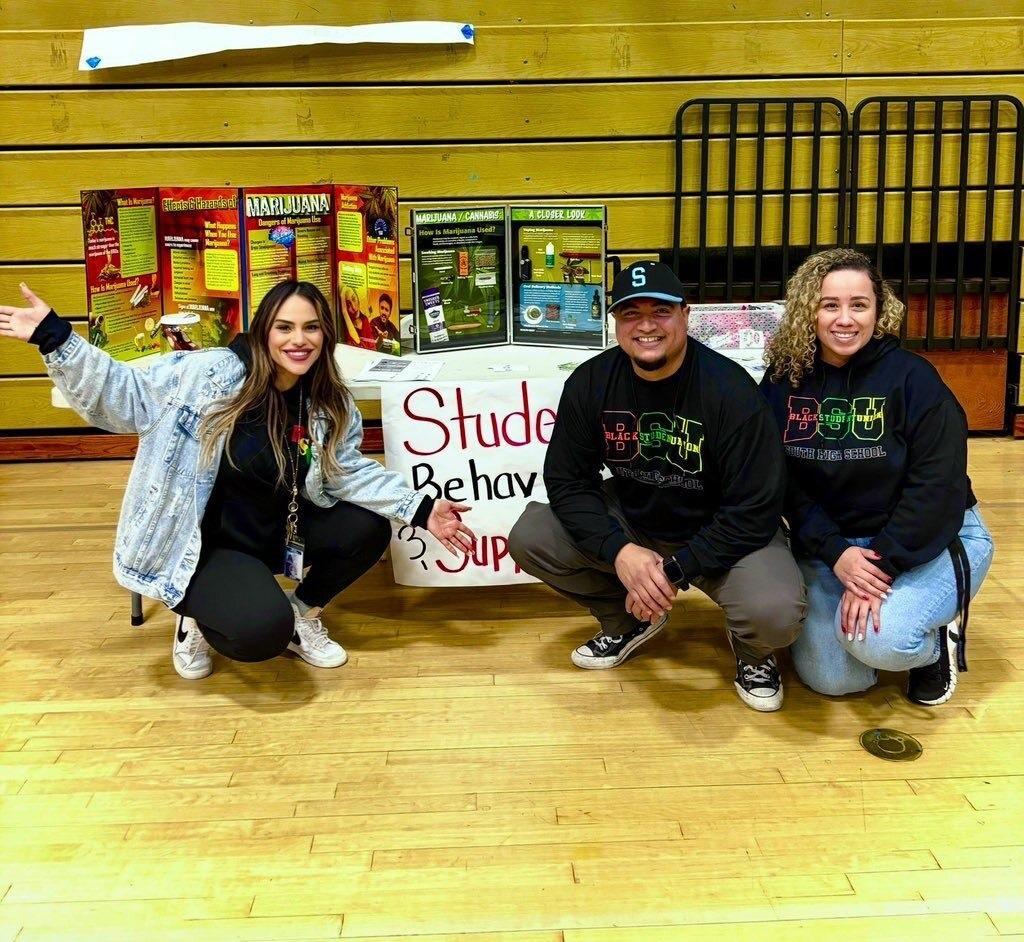Intervention Team
Intervention & Supports Team – SOUTH HIGH
(661) 831-3680
Miroslava Wattonville - School Community Specialist
Ext 77244 e-mail
Mental Health Services
https://www.kernhigh.org/apps/pages/index.jsp?uREC_ID=1672931&type=d&pREC_ID=1824721

- Behavior
- Attendance
- Grades/Credits
- Personal-Social
- Parents
- Students
- Staff
- Screening Tools
▪ Conflict Mediation (SHAC)
- Carey Guides are used in addition to the Matrix for behavior change and recidivism reduction by helping students understand the personal and environmental factors underlying their offending behavior and be taught the skills needed to make positive changes in the future.
- Carey Guides are used to address risk factors, triggers and other conditions that are essential to a student's success.
• Anger Management : Anger Management Essential is 10-12 weeks cognitive behavioral theoretical (CBT) based lesson plan that covers important aspects of implementing an anger management group for teens. Anger Management Essentials program provides problem-solving, stress management and relaxation techniques. Empathy and increased emotional intelligence. Also includes on how to replace unhealthy beliefs with helpful ones and how to get what I want through better communications, listening, and healthy boundaries. Curriculum can be facilitated one-to-one and group sessions.
▪ Restorative Circles/Practices (SHAC)
-
-
- Substance Abuse (OCI, ASPIRE, AND SAS)
- Coping Skills
- Social Skills
- Grief Group
-
-
-
- Case Management and Linkage
-
-
-
- Referring student to mental health services with Child Guidance or Private insurance and following up
-
-
-
- Crisis Assessment and Intervention
-
-
-
- Conducting suicide assessments
- Re-entry plan when student returns back to school from Mary K Shell or Bakersfield Behavioral Health Hospital (BBHH).
-
-
-
- Direct Therapeutic Interventions with Tier 3 Students
-
-
-
- Provide/teach coping skills to help them in the classroom
- Facilitate small Tier 3 focused groups (for those needing more support after Tier 2 groups).
-
Resources for Students, Parents/Guardians, and Community
Kern Behavioral Health & Recovery Services
Access: 661-868-8080
Local Crisis Hotline: 1-800-991-5272
Kern County Department of Human Services - Resource Caregiver Family Guide to Services
https://www.kerncounty.com/dhs/pdf/caregiver_resource_guide.pdf
National Alliance on Mental Illness (NAMI)
California Department of Education, Mental Health
https://www.cde.ca.gov/ls/cg/mh/index.asp
https://www.cde.ca.gov/ls/cg/mh/projectcalwell.asp
https://www.dhcs.ca.gov/services/mh/Pages/ProgramsforChildrenandYouth.aspx
Phone/Text:
National Suicide Prevention Lifeline: 1-800-273-8255
Crisis Text Hotline: Text HOME to 741741
Local Crisis Hotline: 868-8000 or 800-991-5272

